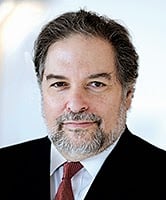A complete overhaul of graduate medical education (GME) financing and governance is needed to fix...
APA Responds to IOM Report on Future of Graduate Medical Education
 |
Summergrad stressed that any changes to GME must be in the service of strengthening the physician pipeline. "At a time of profound change in our health care system, the population of the United States is also growing and aging, and newly insured Americans are entering the system and will continue to do so in the next decade," he said. "Congress has consistently called for an increase in physicians in the workforce. Because we are concerned about the shortage of physicians overall, and of psychiatrists in particular, we note that without a comprehensive examination of the entire funding system, the nation risks exacerbating a real problem that only threatens to grow. APA supports the framework that the Health Resources and Services Administration uses to define medically underserved areas and that the IOM uses in its report." But he noted that changes proposed by the IOM "could diminish the number of psychiatrists and child psychiatrists, already in short supply, and of international medical graduate psychiatrists. These latter physicians represent a high proportion of those who serve in the public sector and in rural areas—a critically important contribution to balancing the geographic distribution of mental health care services.
Summergrad also expressed APA's concern that "the IOM’s recommendations would redistribute funds away from major teaching hospitals that often support outstanding academic departments with premier research and educational programs." He urged GME policymakers "to consider carefully the consequences of a change in approach, especially with regard to the risk of defunding centers of high-quality care and important scientific advances." He stressed that APA stands ready to work with Congress and the White House to address these concerns, noting that by working together "we have the opportunity to build the physician education and training system that the nation and patients deserve. The goal should be to assure that all patients can get the quality care they need, including physician-provided mental health care, in a timely fashion in the years to come.”
Read the complete APA statement on the IOM report on the APA website.





